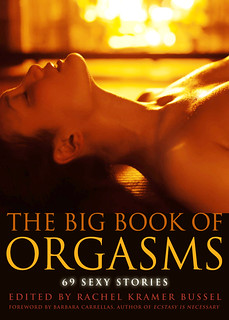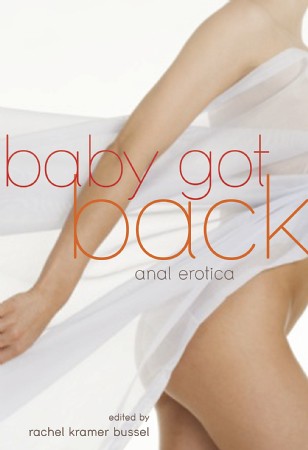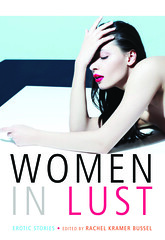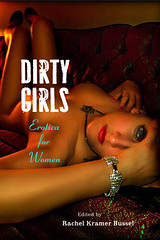
As soon as I got a copy of Kerry Cohen's
Loose Girl: A Memoir of Promiscuity, in the mail, I knew it would be one I'd want to read. Because that's the kind of book I tend to fall for. What I didn't know was how much I'd relate to it...even though I didn't have sex for the first time until after high school. Like me, Cohen grew up a Jersey Girl. Like me, her parents got divorced. Unlike me, she wound up being drawn into her parents' conflict, and much of
Loose Girl is about trying to make sense of their divorce and her conflicted feelings about where she belonged, and doing so by jumping into bed with boy after boy, then man after man.
She writes:
This is what I wait for every night: a face hovering close above mine, his breathing fast and out of control. Him wanting me, all mine. He kisses my neck, my collarbone. So sweet, I can almost believe he loves me. And then he is inside me. He moves, gripping my hips and butt. Like he needs me, too...
When Amy and I leave that night, Dave hugs me then chucks me under the chin. It is sweet, affectionate, a big brother's gesture. I smile, not knowing what else to do.. I guess this is just how it is. Having sex is lukewarm, something you share for an evening. It's friendship-building. What else should it be?I never snuck into Manhattan and went to boys' apartments when I was in high school. I would say I'm romantic but not in the traditional sense.
But that feeling of letdown, of believing that sex is the harbinger of something beyond the physical, only to find that it's so momentary it may as well not exist...I get that. And from everything I've read, it's way tougher on teenage girls now. I don't say that to imply that every woman is looking for the same things, or that all women should (or all men for that matter). I say that because I relate to the spirit of
Loose Girl. Cohen was looking for male attention, and love. I wasn't really looking for either in my twenties - well, the former more than the latter. But I think even if you are a freethinking, polyamorous by nature, go with the flow sex positive type of girl, there are still heartbreaks. Men are heartbroken too but in this way Cohen describes? I'm not so sure.
Cohen goes to get tested for HIV, and confesses that she doesn't use condoms for a reason I'm sure many can relate:
In the moment, when I'm trying to make some guy mine, thoughts about death or disease are furthest from my mind. I'm too caught up in desperation, in filling what I can never seem to fill. She picks up guys at Dorrian's Red Hand, right before it's made infamous by the Jennifer Levin/Robert Chambers preppy murder case:
Had he ever come to Amy's and my table would have gone with him in a second. I would have held his hand in the park, as I imagine he held Jennifer's. I would have allowed him to push me into the deep, damp grass, to wrestle off my clothes, to bite at my neck. I would have pulled him against me, into me, deep inside to that silent, painful spot. Before I remember she is dead and gone I will think how much I would have liked that, to meet him there at that place.Somehow, though, her story turned into this:
"Is "Sex Addict" Kerry Cohen Even Actually a Slut?" on Jezebel, spawning a ridiculous discussion about what "counts" as slutty. I'll agree that
Marie Claire played up the sensationalist angle, subtly implying that if you've slept with over 40 guys,
of course you're a slut, end of story. But it was sad to see this become less about the ways Cohen felt uncomfortable with her promiscuity and more about who gets to lay claim to being a "slut," in some weird kind of reverse trend to the usual media slut shaming.
Dan Savage and
Boinkology added to the chorus.
There is nothing to my mind "sex positive" about saying that someone is not entitled to their story, their feelings, their interpretation. You may not think it newsworthy, but is it really such a startling thing that women may have mixed feelings or in this case, not so mixed, about their promiscuity? We have Susan Cheever's and Rachel Resnick's books on the topic coming out later this year, so clearly there is interest from the publishing world. I'd like to see a little more open-mindedness from people who should know better. I've already written
about how sex addiction is overblown and by those measures, we are all sex addicts. But this whole "she only slept with forty guys so she's no slut" business misses the point entirely. It's not and never was about the number, but the reasons for that number. With that longwinded intro, here's my e-mail interview with Cohen.
 Your first book was a YA novel, Easy, which focuses on much of the same territory as your memoir, Loose Girl, both about young women who seek out sex when what they want is love and attention (and, I would venture, sex along with those). The details are different but the emotions and insights are largely the same. How did each book come about, and why did you decide to publish both?
Your first book was a YA novel, Easy, which focuses on much of the same territory as your memoir, Loose Girl, both about young women who seek out sex when what they want is love and attention (and, I would venture, sex along with those). The details are different but the emotions and insights are largely the same. How did each book come about, and why did you decide to publish both?In all honesty, I wrote
Easy when I wasn’t quite ready to write
Loose Girl. I had been trying to write
Loose Girl, and I set it aside and wrote
Easy instead. I assumed writing the story as fiction would fulfill any desire I had to get my story out there. But it didn’t. I couldn’t stop myself from writing
Loose Girl (against my agent’s advice). For this subject matter, it turns out honesty was the best means for getting at the material. Sometimes I regret
Easy because it seems like a tame version of
Loose Girl, but then I remember that lots of young teens have contacted me, telling me the book helped them understand certain things about themselves.
Loose Girl is too raw for lots of younger teens, so I’m glad
Easy is available for them.
Your parents don't come off very well in the book; your mother is distant and your dad is a little too interested in what you and your sister are going through relationshipwise. What are your relationships like with them now? What do you think they could have done differently?I have pretty good relationships with both of them. It took some work, of course, and still does. They’re limited, like all of us. I also think they were parenting during a very confusing time. Like lots of parents of that era, their own parents had stayed silent about things like sex and drugs, and since this hadn’t worked well, they went to the other extreme: too much freedom around sex and drugs, and too much trying to be friends instead of authorities. I think they both have some regrets. I also think they both don’t see, or maybe don’t want to see, a lot of stuff they did, and still do. It’s hard to say what they could have done differently, especially now that I’m a parent myself. Every kid is different, and it’s very difficult to know what each of us needs and how each of us will respond to different treatment by our parents. I guess the one thing I can point to with certainty is that my parents didn’t allow me to have my feelings – not if those feelings were going to make them feel bad. And this led directly to my desperation to be seen.
As a parent of two boys yourself, how do you think parents can be involved in their kids' lives and reach out to them, especially about sex, when clearly it's a topic kids with even the most open-minded parents are reluctant to talk about? Are there warning signs parents can look for?I believe the treatment of this subject will have to be somewhat different, depending on whether your child is a boy or girl. “The Talk” is probably important at some point, but not nearly as important as other things. Girls are not allowed to own their sexual identities and development in our culture. The media images about who girls need to be – sexy and available – clash entirely with the equally loud message that girls should keep their desires under wraps. In my estimation, parents will have the best luck if they build in their kids a healthy ability to critically examine the culture in which they live, and then talk some about sex in those terms. Also, they should do their best to get kids involved in activities like arts and sports, and then stay involved with their children’s interests in this way. Sports can be especially good for girls, as a way to build a sense that their bodies are worthwhile for something other than to be looked at. Finally, parents have to model self-worth for their kids.
Warning signs will differ. This is a hard one, because it’s perfectly natural to want others’ romantic and sexual attention when you’re a teenager. It’s also normal to have sexual curiosity and to experiment. And then, even inside healthy behavior, girls will wind up punished or hurt by the behavior because of our culture’s treatment of them as sexual creatures. I’d say, keep these lines as open as possible, encourage critical thought and self-esteem, and learn the signs for depression and addiction.
You did an interview with Marie Claire magazine where the headlines was "Confessions of a Sex Addict." Do you consider yourself, or did you consider yourself, a sex addict? I don’t consider myself a sex addict, no. I hadn’t been aware the magazine was going to run that banner. But,
Marie Claire isn’t the only place I see that label applied to my story. In the UK, for instance, the words “addiction to sex” are right there on the cover, even though I argued to get them off. There’s a line in the book jacket copy: “…soon she needed sex just to feel alive.” My God! But I’m not totally blameless here. I agreed to be profiled on an episode of
The Secret Lives of Women about sex addiction because I figure if this is how my story needs to be labeled to get read and to help other people, then so be it. I’ve come to the understanding that lots of people will only understand my behavior as sex addiction. We have all these prescribed ideas about female sexual behavior, and if a girl has tons of sex that made her feel bad, well she must be a sex addict. I used sex in my addiction. No doubt about that. But my addiction was more to male attention – to that moment when he gave me attention and I felt chosen – than to the sex itself.
Some of the blog postings about the Marie Claire article questioned how you could be a "slut" or a "sex addict" when you'd "only" slept with 40 men. I've slept with, shall we say, more than 40 men, but I don't consider myself a sex addict. How and where does one draw the line? Yes, I found those blog postings about my slut cred amusing. A friend emailed me after seeing the thread and said, “What, now you aren’t skanky enough?” I wrote in the introduction to
Loose Girl that many will have much longer lists than mine, but these facts we have – numbers, statistics – they don’t get at what sits beneath the behavior. I can’t say what will hurt or feel right for another person. I only know that of the 40-some-odd boys and men I had sex with, maybe two or three were fulfilling situations. The rest made me feel like shit. Only one could be defined as rape – meaning, I actively didn’t want that one to happen, but most all the other sex felt just as violating and self-destructive. And yet I chose it. I kept choosing to have sex, not from a place of natural sexual desire, or just because I was attracted to a guy and wanted to get with him. I was having sex from a place of terrible desperation. Every single time I did it because I needed the sex, and his interest in me sexually, to mean I was worthwhile and lovable. That’s the line right there.
In your research and work as a therapist, how much of sex addiction is "a female problem?" Does it manifest differently for men? Well, first I must confess that I haven’t worked with many sex addicts. Nor have I done tons of research in the area. So I’m speaking from limited experience. I do think sex addiction manifests differently in men and women, only because, like anything else, the addiction is culturally cued. When men want sex and have sex, they get congratulated. When the behavior becomes pathological, that line is much clearer. Women, though, still tend to get shamed for wanting sex. As a result, a woman’s sexual addiction can often be masked in love addiction (which is yet another type of addiction – explored in Rachel Resnick’s forthcoming book
Love Junkie). Or it gets mistaken for a desire for attention that leads to promiscuity, which is more what my book is about.
That line you asked me to address in the previous question is often blurry in our culture. Just because a woman seeks lots of sex, with lots of partners, this doesn’t make her a sex addict. The “addiction” piece must be there: some kind of desperate desire to fill herself, to make up for something, and the behavior must be self-harming even as she keeps going back. And then there’s the fact that women are expected to desire and choose monogamy. Often they get into relationships because this is the only socially acceptable thing to do, but then they want to have casual sex with other partners and wind up emotionally hurting their partners. Does this make her a sex addict? It seems the real problems, once again, are the limitations placed on girls’ and women’s sexual identities. I would concede that until we do a better job of peeling back these cultural layers, we can’t assume sex addiction in as many women as we do.
How do see you promiscuity, or sex addiction, as being similar to, or different from, other kinds of addictions? My addiction was to male attention, to that moment when he would look at me or touch me, and I would feel chosen, that I mattered to someone. Sex addiction is an addiction to the actual sex, to the high that comes from the sexual feelings, or from the conquest. I share with sex addicts the addiction to avoid intimacy, which is ironically what I claimed I was after. I’m well aware of the danger of maintaining that I was an addict, by the way. There are plenty of people with drug addictions, alcoholism, and even sex addictions who go in and out of rehabs, whose brain chemistry is wired for addiction, and who have almost died – and indeed died – on their journeys. My assertion can be offensive to those people. But I guess I won’t relent because the bases of addiction are all there, and this seems important in order to take responsibility for what I did, and also to help others see their behavior more clearly. I used male attention and sex self-destructively, I put myself in harm’s away again and again (STDs, rapes), I couldn’t stop even after I had gained insight about my behavior, and I continue to be “in recovery” for it. Unlike drugs and alcohol, though, I can occasionally indulge my continued enjoyment of male attention without letting it run my life, and without needing to attach all that meaning to it. I’m well aware that’s not something most drug and alcohol addicts can do.
Have you heard from any of the men you wrote about in Loose Girl? No. I never lost touch with one of them, and every once in a while I’m in contact with one of the ex-boyfriends. It would be interesting to hear from a few others too. I’d mostly love to hear from one of the Jennifers, none of whom I ever saw again after that day. I still feel guilty about what I did there.
How do you see your experiences contrasting with those who are proud to be slutty or promiscuous, who embrace casual sex? Is casual sex automatically a negative thing for women? Of course not! I mean, it tends to be a negative thing in plenty of people’s minds, but it certainly isn’t in mine. Lots of times I look back on my experiences and feel regret that I didn’t just enjoy myself. I’m married now. Those days are over. I sure wish I had had fun rather than needing every last glance to mean something. It wouldn’t have been possible for me, though, because my sense of self-worth was so low. Casual sex winds up being impossible – or difficult, at least – for lots of women because it’s not socially acceptable. I notice that lots of girls have to get drunk so they’ll have an excuse when they act promiscuously. I also notice that lots of girls in their late teens and twenties choose unavailable guys for relationships, and I can’t help but wonder if it isn’t so that they can blame their disinterest in real commitment on him. I hope that someday we can get beyond these tired old expectations for girls and let them own their own sex lives.
Your book has a "happily ever after" when you meet your future husband, but that can't be the end of the story. I found the ending a bit rushed in light of how much attention was given to your various sexual encounters. Can you elaborate on how you changed your behavior and way of thinking? How does this impulse for male attention play out in your life today? No, you’re right. There is no happily ever after, and I certainly didn’t intend it to be so in the book. Everyone asks me this question, of course: How did you finally make change? I always find myself a bit stumped when answering. It was a combination of many things – self-awareness, growing up, therapy, friends, living through my life experiences, and my personality. I am extremely aware these days of my struggle with intimacy. I was very good in the past at convincing myself that it was the guys who had that problem, not me. And it’s complicated, because I tended to choose emotionally unavailable men. But seven years into my marriage, my own issues and the ways in which they play out even inside the marriage, are too obvious to miss. Because I’m not acting them out anymore, no longer projecting them onto other people, I’m stuck with them. It’s sort of pathetic, actually, how unskilled at intimacy I am. I’m working at it, though.
My children have probably been the biggest force in keeping me inside this work. Perhaps if my husband and I hadn’t had them, I already would have left him at some point, as soon as I started feeling uncomfortable or like I had to work too hard. Having children means I can’t put my own selfish fantasies and unexamined needs first. In all honesty, it kind of sucks for my addict-self. Every addict holds onto this fantasy:
No matter what happens here, I can always go back to comfortably treating myself like shit if I want. But when you have kids, that door swings shut. You’re not willing to risk your children’s happiness.
Loose Girl was lumped into the memoir category of "Bad girls save themselves" by a Pittsburgh Post-Gazette reporter. What do you think of that description? Well, need I say that that author obviously didn’t read the book? He – and plenty others – was annoyed that I wrote a memoir about being a privileged “bad girl.” Privilege really pisses people off! How dare I come from money and then claim my life stunk in some way, when there are people out there who are
really suffering? Meanwhile, I’m always interested when we learn that money and cushy lives don’t save people. Most people think sluts are going to be socio-economically disadvantaged; that’s the stereotype. I wanted to show a different image. But, anyway, “bad girls save themselves.” I’m okay with that description. Is it supposed to be an insult? You know, people are going to come up with their sound bytes about the book. I really can’t control how people will perceive it.
What are you working on next? I’m working on a new memoir about parenting my son, who is on the autistic spectrum. I’m interested in our culture’s notion of special needs, because my husband and I have
way more problems than my son does, and we’re both considered “normal.” So much of what people assume I should want changed about my son are things that simply make them uncomfortable. Also, so many of those things he can’t change, anyway. It’s how his brain works. He is who he is, you know? And so many feelings I wrestle with surrounding his autism, it turns out, are really much more about me than him. In many ways the book is about trying to find a way to be happy with what you’ve been handed, and following that line, it’s a sort of sequel to
Loose Girl. See also:
Kerry Cohen's websiteKerry Cohen's blogInterview at Teen Reads Too about EasyLabels: interview, Kerry Cohen, Loose Girl, memoir, promiscuity














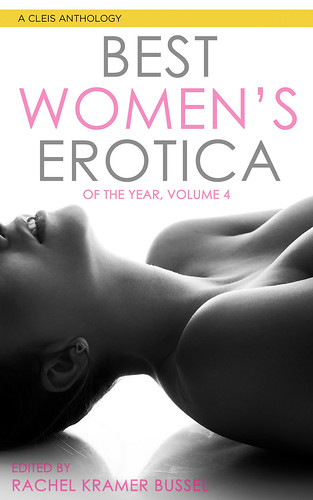
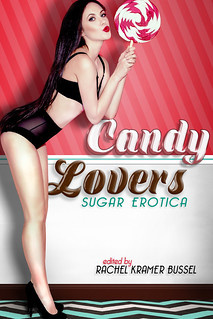

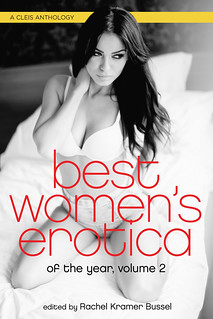



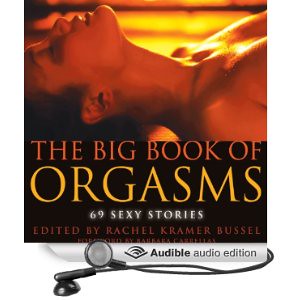

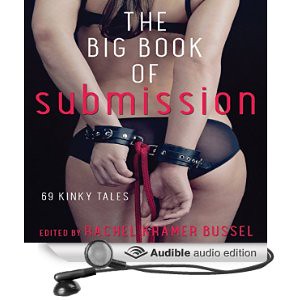 The Big Book of Submission: 69 Kinky Tales
The Big Book of Submission: 69 Kinky Tales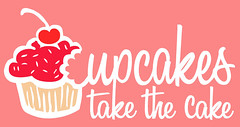
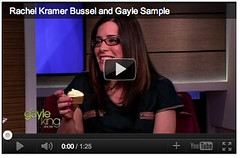

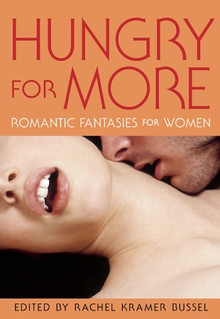
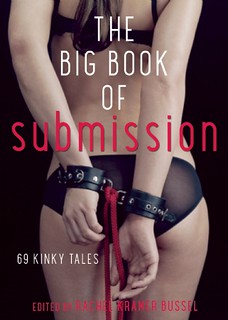
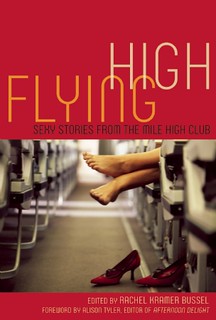 Flying High: Sexy Stories from the Mile High Club
Flying High: Sexy Stories from the Mile High Club